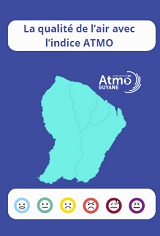Blada.com
samedi 14 février
Boîtes aux lettres
Courrier des lecteurs
Petites annonces
Emploi / Formation
Covoiturage
Infos citoyennes
Infos citoyennes
29/03/21
Intention de vaccination : les premiers résultats tombent
 Courant mars, l’Institut Pasteur a étudié la motivation des Guyanais par rapport à la vaccination contre le Covid-19, leur opinion sur le vaccin, leur réticence ou leur souhait de se faire vacciner, leur confiance dans les décisions prises pour protéger la population. Les premiers résultats montrent que moins d’un Guyanais sur deux envisage de se faire vacciner contre le Covid-19, des résultats qui varient selon le lieu d’habitation, l’âge, le niveau socio-économique et de couverture sociale, mais aussi la présence d’un proche déjà contaminé.
Courant mars, l’Institut Pasteur a étudié la motivation des Guyanais par rapport à la vaccination contre le Covid-19, leur opinion sur le vaccin, leur réticence ou leur souhait de se faire vacciner, leur confiance dans les décisions prises pour protéger la population. Les premiers résultats montrent que moins d’un Guyanais sur deux envisage de se faire vacciner contre le Covid-19, des résultats qui varient selon le lieu d’habitation, l’âge, le niveau socio-économique et de couverture sociale, mais aussi la présence d’un proche déjà contaminé.
L’Institut Pasteur de Guyane a compilé les résultats de la première vague de son enquête Cap Covid. Au total, 1 348 personnes y ont répondu, entre le 8 et le 21 mars. Les estimations ont été ajustées en fonction de la zone géographique, du sexe, de l’âge et de la catégorie socioprofessionnelle afin de prendre en compte les éventuels biais de représentativité liés à la participation à l’enquête en ligne. Le Dr Claude Flamand, de l’unité d’épidémiologie, constate que «29,8 % des Guyanais comptent certainement se faire vacciner contre le Covid-19 et 15,7 % pensent certainement le faire », soit un total de 45,5 %. Inversement, « dans le groupe des personnes réticentes, 24,6 % pensent ne probablement pas le faire et 29,9 % sont certaines » de ne pas se faire vacciner contre le Covid-19.
« Les personnes qui comptent se faire vacciner contre le Covid-19 motivent leur choix par la volonté de se protéger soi-même (73,3% des individus favorables à la vaccination), celle de protéger ses proches (71,3%) ou de protéger les personnes les plus fragiles (64,1%), la volonté de reprendre le plus vite possible une vie normale (64,1%) et dans une moindre mesure pour sortir le pays de la crise économique (34,8%), détaille le Dr Claude Flamand. Trois-quarts des individus qui expriment librement leur motivation ont déclaré le faire pour être en mesure de voyager librement. Chez les personnes réticentes qui sont certains de ne pas se faire vacciner, la première raison motivant leur choix est basée sur l’incertitude liée à l’efficacité du vaccin, en particulier dans le contexte de circulation de nouveaux variants (68,7%), la peur des effets secondaires (41,8%), un recours préféré aux remèdes traditionnels (36,4%), le fait d’avoir déjà été infecté au coronavirus (20,2%), la peur que le gouvernement utilise le vaccin pour injecter des particules capables de pister ou contrôler les individus (20,1%). Parmi les motivations exprimées de façon libre, on retrouve fréquemment le manque de recul sur des vaccins développés trop rapidement, l’intérêt limité de la vaccination si celle-ci ne permet pas d’éliminer les contraintes sanitaires liées au Covid-19 (port du masque, test PCR pour voyager, ...) et la faible gravité perçue de l’infection au Covid-19. Au final, 65,4% d’entre eux déclarent que rien ne pourrait leur faire changer d’avis vis-à-vis de la vaccination contre le Covid-19. »
« Au niveau géographique, la moitié des habitants du littoral (50,1%) sont prêts à se faire vacciner, contre 29,6% du Maroni et 78,8% de l’Oyapock même si le peu de participants dans cette dernière zone ne permet pas de conclure (N=8), poursuit Claude Flamand. Les femmes sont moins favorables à la vaccination en général (50,7% vs 80,9% chez les hommes) et dans une moindre proportion à la vaccination contre le Covid-19 (40,1% vs 51,0% chez les hommes). Les intentions vaccinales contre le COVID-19 augmentent avec l'âge en passant d'environ 28,5% chez les 18-35 ans à 77,6% chez les 65-74 ans et semblent diminuer chez les plus de 75 ans (53,0%) bien que le nombre de participants soit relativement faible dans cette tranche d’âge (N=25). Le niveau socio-économique des individus apparaît également comme un déterminant important avec des intentions vaccinales plus importantes dans les niveaux socio-économiques les plus élevés. Parmi les bénéficiaires du régime général, 57% des individus pensent se faire vacciner alors qu’ils sont 20,6% chez les bénéficiaires de la CMU et 44,2% dans le groupe incluant les bénéficiaires de l’AME ou ceux ne bénéficiant pas d’une couverture sociale. Les cadres et professions intellectuelles supérieures (69,4%), les artisans chef d'entreprise (68,0%), les professions intermédiaires (64,7%) et les retraités (65,1%) sont les plus enclins à se faire vacciner contre le Covid-19 à l’inverse des employés (48,2%), des ouvriers (30,1%), des étudiants (34,2%) et des autres sans activité professionnelle (35,5%). Les professionnels de santé en contact avec des patients sont plus favorables à la vaccination (70,5% vs 39,1% chez les autres). Les personnes qui déclarent avoir au moins deux facteurs de risque de complication sont plus favorables à la vaccination que celles qui ne présentent pas de facteur de risque (93,1% vs 61,7%). Ceux qui ont des proches infectés par le Covid-19 sont plus favorables à se faire vacciner (54,6% vs 34,6%) que ceux qui n’en avaient pas. »
« L’intention de se faire vacciner est également liée au niveau d’inquiétude vis-à-vis de la pandémie liée au Covid-19. La proportion de ceux qui pensent se faire vacciner est de 21,3% chez les personnes qui ne sont pas du tout inquiètes, de 58,2% chez celles qui sont plutôt inquiètes et de 71,0% chez ceux qui se disent tout à fait inquiètes.
La confiance dans le gouvernement et dans les autorités locales fait également partie des déterminants des intentions vaccinales. Moins de 20% de ceux qui ne font pas « du tout » confiance au gouvernement (18,4%) ou aux autorités locales (18,1%) pour la gestion de la crise pensaient se faire vacciner contre respectivement 83,6% et 55,4% de ceux qui font tout à fait confiance au gouvernement ou aux autorités locales. Les personnes qui ne se sentent politiquement ni à gauche, ni à droite ou qui déclarent ne pas savoir leur orientations politiques étaient moins favorables à se faire vacciner que celles qui déclarent avoir une orientation spécifique (32,0% vs 64,7%). Près d’un tiers (30,0%) des individus déclarent avoir utilisé des remèdes traditionnels pour éviter de tomber malade du Covid-19. Près de la moitié (47,5%) des individus qui déclarent avoir été infectés du Covid-19, déclarent en avoir utilisé pour se soigner. »
During March, the Institut Pasteur studied the motivation of Guianese in relation to vaccination against Covid-19, their opinion on the vaccine, their reluctance or their wish to be vaccinated, their confidence in the decisions taken to protect the population. The first results show that less than one in two Guianese plans to be vaccinated against Covid-19, results which vary according to the place of residence, age, socio-economic level and social coverage, but also the presence of a loved one who is already infected.
The Institut Pasteur in French Guiana has compiled the results of the first wave of its Cap Covid survey. A total of 1,348 people responded between March 8 and March 21. The estimates have been adjusted according to geographic area, sex, age and socio-professional category in order to take into account any representativeness bias linked to participation in the online survey. Dr Claude Flamand, from the epidemiology unit, notes that "29.8% of Guianese certainly intend to be vaccinated against Covid-19 and 15.7% certainly think they will do so", for a total of 45.5 %. Conversely, "in the group of reluctant people, 24.6% think they probably do not do it and 29.9% are sure" not to be vaccinated against Covid-19.
"People who plan to be vaccinated against Covid-19 motivate their choice by the desire to protect themselves (73.3% of individuals in favor of vaccination), that of protecting their loved ones (71.3%) or to protect the most fragile people (64.1%), the desire to resume a normal life as quickly as possible (64.1%) and to a lesser extent to get the country out of the economic crisis (34.8%) , details Dr Claude Flamand. Three-quarters of individuals who freely express their motivation reported doing so in order to be able to travel freely. In reluctant people who are sure not to be vaccinated, the first reason for their choice is based on the uncertainty related to the effectiveness of the vaccine, especially in the context of circulation of new variants (68.7%) , fear of side effects (41.8%), preferred use of traditional remedies (36.4%), having already been infected with the coronavirus (20.2%), fear that the government will use the vaccine to inject particles capable of tracking or controlling individuals (20.1%). Among the motivations expressed freely, we often find the lack of perspective on vaccines developed too quickly, the limited benefit of vaccination if it does not eliminate the health constraints related to Covid-19 (wearing of mask, PCR test for travel, ...) and the perceived low severity of the Covid-19 infection. In the end, 65.4% of them say that nothing could change their mind about the Covid-19 vaccination. "
“At the geographical level, half of the inhabitants of the coast (50.1%) are ready to be vaccinated, against 29.6% of the Maroni and 78.8% of the Oyapock even if the few participants in this last zone does not allow a conclusion (N = 8), continues Claude Flamand. Women are less favorable to vaccination in general (50.7% vs 80.9% in men) and to a lesser extent to vaccination against Covid-19 (40.1% vs 51.0% in men ). Vaccination intentions against COVID-19 increase with age, going from around 28.5% in 18-35 year olds to 77.6% in 65-74 year old and seem to decrease in over 75 year olds (53 , 0%) although the number of participants is relatively low in this age group (N = 25). The socio-economic level of individuals also appears to be an important determinant with greater vaccination intentions in the highest socio-economic levels. Among the beneficiaries of the general scheme, 57% of individuals think of being vaccinated whereas they are 20.6% among beneficiaries of CMU and 44.2% in the group including beneficiaries of AME or those not benefiting social coverage. Executives and higher intellectual professions (69.4%), artisan entrepreneurs (68.0%), intermediate professions (64.7%) and retirees (65.1%) are the most inclined to get vaccinated against Covid-19, unlike employees (48.2%), workers (30.1%), students (34.2%) and others without professional activity (35.5%). Health professionals in contact with patients are more favorable to vaccination (70.5% vs. 39.1% among others).
People who report having at least two complication risk factors are more favorable to vaccination than those who do not present a risk factor (93.1% vs. 61.7%). Those who have relatives infected with Covid-19 are more in favor of getting vaccinated (54.6% vs. 34.6%) than those who do not.
“The intention to be vaccinated is also linked to the level of concern about the Covid-19 pandemic. The proportion of those who think they will be vaccinated is 21.3% among those who are not at all worried, 58.2% among those who are somewhat worried and 71.0% among those who say they are completely actually worried. Confidence in government and local authorities is also one of the determinants of vaccine intentions. Less than 20% of those who do not “at all” trust the government (18.4%) or local authorities (18.1%) for the management of the crisis thought to be vaccinated against respectively 83.6% and 55.4% of those who very much trust the government or local authorities. People who do not feel politically either left or right or who say they do not know their political orientations were less in favor of being vaccinated than those who say they have a specific orientation (32.0% vs. 64.7%). Almost a third (30.0%) of people say they have used traditional remedies to avoid getting sick from Covid-19. Almost half (47.5%) of individuals who say they have been infected with Covid-19 say they have used it for treatment. "
Raccourcis


passer une petite annonce

passer une annonce de covoiturage
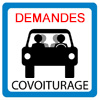

passer une annonce d’emploi
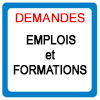

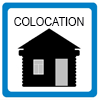


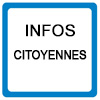
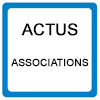
associations, postez vos actualités

participez au courrier des lecteurs
La Guyane c’est ici
La qualité de l’Air avec
ATMO
Photothèque

Lancements 2022
Vol 259 Ariane 5



